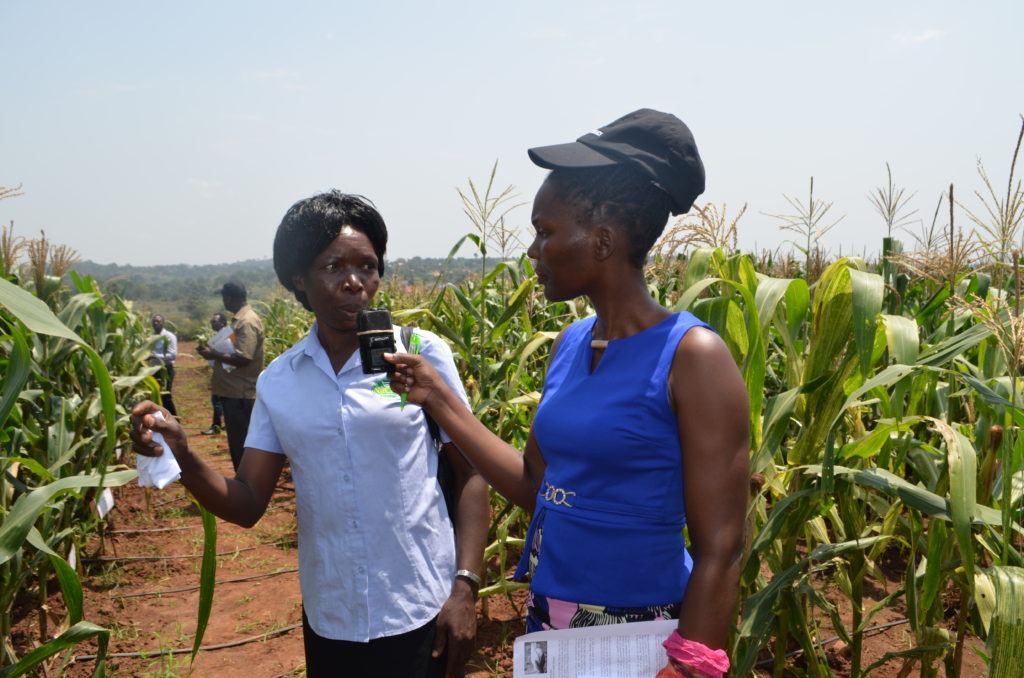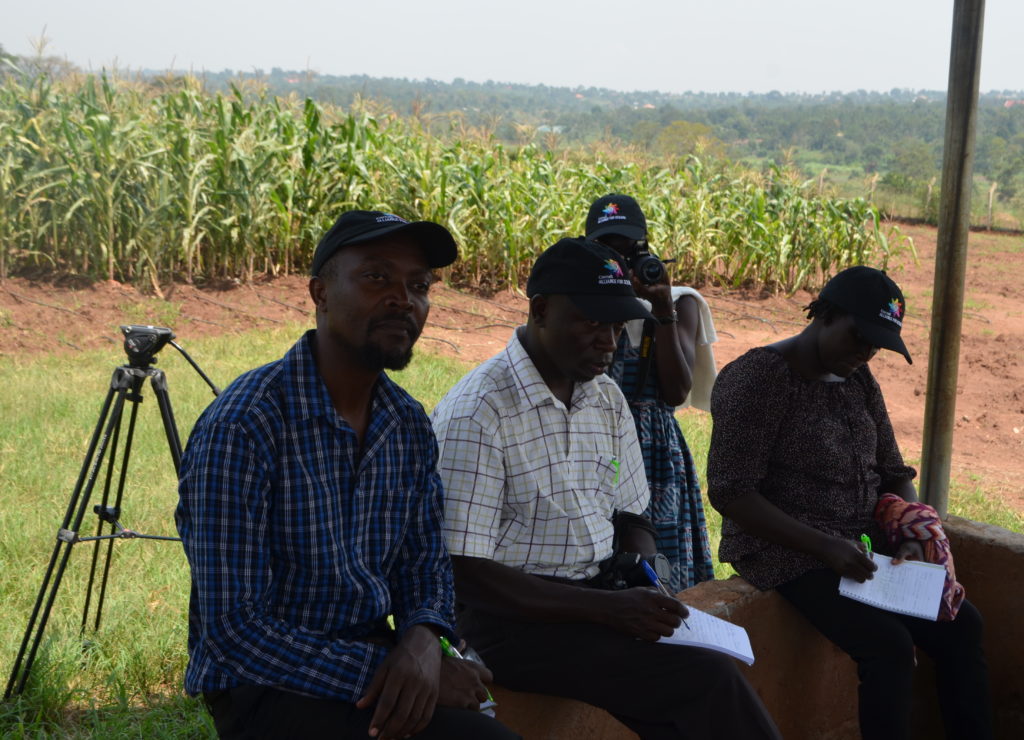“Why does the public hear more of the myths and lies about genetically modified crops than the truth and facts that the scientists are so proud of?” asked Abalo Irene Otto, a freelance journalist with The Observer newspaper in Uganda.
Her question was directed to Dr. Godfrey Asea, director of the National Crops Resources Research Institute (NaCRRI) at Namulonge, Uganda, and one of the country’s top researchers on GM maize, during a press conference showcasing a field trial of the Water Efficient Maize for Africa (WEMA) Project there.
Abalo, like many of the 25 Ugandan journalists who participated in a March 9-10 workshop at Namulonge on how to report on the science and use of agricultural biotechnology, wondered why some politicians and members of the public oppose the technology, even when presented with clear information and facts derived from research.
The reporters also decried the bureaucracy that they endure to get a scientist to appear on a radio or television program. “Sometimes we have radio airtime, but can hardly find someone to host and who is able to speak in a local dialect,” noted Edward Sserinya, an editor at Bukedde, a local FM radio station.
The journalists cautioned that these and other rarely discussed issues have blocked media and scientists from sharing accurate information in the midst of Uganda’s GMO debate and controversy.
Nonetheless, scientists have been awakened to the reality of the information age. “As scientists, we never had to worry about information dissemination,” Dr. Asea told reporters. “But we are now coming out strongly to make our case.” He went on to add that “there are still a lot of myths and misinformation out there, but we are not enough to reach everybody in the country. This is where we need the media.”

Since 2007, Ugandan scientists at the National Agricultural Research Organization (NARO) have used biotechnology to develop genetically-engineered varieties of banana, cassava and maize that are resistant to black sigatoka and bacterial wilt, brown streak and mosaic diseases, and drought and stem-borer challenges, respectively.
It is estimated that banana bacterial wilt alone causes an average yield loss of 71.4 percent, representing an estimated annual loss of US$299.6 million. Uganda’s economy could be boosted by US$25.4 million yearly by solving the dual challenge of stem borers and drought effects in maize, and cassava brown streak and mosaic diseases cause an estimated annual loss of US$1.25 billion in export earnings for the country.
But despite the clear economic benefits for the nation and its farmers, and the associated reduction in the use of pesticides, Uganda has yet to pass a biosafety bill that would guide the process for getting these publicly developed GMO crops out to the farmers who need them most.

In an attempt to dispel misinformation about GMO crops, NACCRI has hosted a range of sensitization engagements for policy makers, religious and community leaders, media, students, educators, farmers and others, reaching millions of participants in 2017. The outreach efforts were complemented by several “seeing-is-believing” activities for policy makers, including officials from the ministry for Science and Technology, members of Parliament, media editors, regulators, university students and scientists.
The journalism workshop, which was offered in cooperation with the Cornell Alliance for Science, was conducted to continue this outreach effort. NACCRI, which is hosting research on GM maize, rice and cassava, also has held numerous trainings and sensitization engagements for stakeholders through the Uganda Biosciences Information Center (UBIC) and the WEMA project.
Though Uganda has made significant progress in GM research and regulation, resulting in Parliament passing a biosafety bill last October, President Museveni referred the National Biotechnology Act back to lawmakers last December, citing gaps that needed to be addressed. Parliament is expected to take up the bill again this week.
Winnie Nanteza is the development communication officer with the National Crops Resources Research Institute-Uganda.
